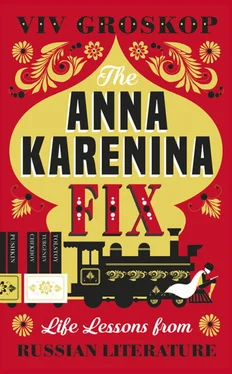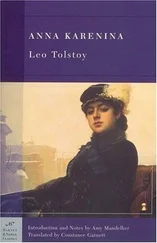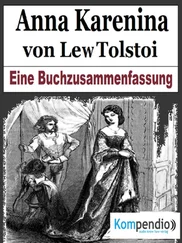This omen is intentional. Tolstoy knew from the beginning of the book that Anna Karenina would die in a train accident at the end, because that is what happened in real life. The year before Tolstoy started the novel, a neighbour of his had an altercation with his mistress. Her name was Anna Stepanovna Pirogova. (Rather brilliantly, her name means something like ‘Anna of All the Pies’. Surely this would have been a much better title? Even better than ‘The Book of Steve’.) In Henri Troyat’s biography of Tolstoy, he recounts that this woman was ‘a tall, full-blown woman with a broad face and an easy-going nature’. I feel this may well be code for ‘fat’ or ‘pie-filled’. Anyway. Tolstoy’s neighbour had thrown Anna of All the Pies over for a German governess. The real-life Anna (of All the Pies) took it badly, wandered the countryside distraught for three days and then threw herself under a train. (I am so tempted to add: ‘There was pie everywhere.’ But that would be insensitive.)
Anna Stepanovna Pirogova left a note: ‘You are a murderer. Be happy, if an assassin can be happy. If you like, you can see my corpse on the rails at Yasenki.’ Tolstoy went to the autopsy, which took place on 5 January 1872. Let’s just think for a moment about the sort of person who would do that and how it might have affected him… When he began writing Anna Karenina , he gave his heroine the dead woman’s first name and used her patronymic (Stepanovna) for the name of Anna Karenina’s brother, Stepan. I cannot be alone in thinking this is creepy.
So while we, the readers, don’t know the fate of Anna Karenina when we first meet her stepping off (gulp) a train, Tolstoy knows all along and plays with us by hinting at what’s in store. The first time we see Anna, of all the places Tolstoy could have chosen to reveal her, it just has to be emerging from a train carriage, doesn’t it? And, equally naturally and unavoidably, it has to be a train that has just crushed someone to death. In the early pages, the novel builds up to the first glimpse of Anna with beautiful prose and so much suspense. Tolstoy makes you spend ages unwrapping this precious gift, tearing off layer upon layer of narrative describing endless provincial balls and fur coats and taffeta dresses, only to find that the prize, when it finally arrives, is shrouded in smoke and steam, upstaged by the shouts of people who have just seen (and I quote) a ‘mangled corpse’.
Tolstoy didn’t have to foreshadow her death. But he can’t resist warning us that he’s not really sure that he has anything more to impart, other than the idea that we are basically doomed. It’s as if Tolstoy is saying: ‘Yes, I will show you the meaning of life. But first I just have to work it out for myself. In the meantime, read this novel, which may or may not contain some clues.’ I’m paraphrasing. Tolstoy would never say this. Instead, he would say something like: ‘All the variety, all the charm, all the beauty of life, is made up of light and shade.’ It’s Stiva, Anna’s brother, who says this. (Levin – the Tolstoy of the piece – isn’t listening, of course.) Tolstoy can create beauty and magic. But he is like the Wizard of Oz, all smoke and mirrors, and pretending and grandiosity. Underneath it all he is just a man on the brink of a breakdown who wants to eat a lot of eggs.
Anna Karenina, both the character and the novel, embodies the questions Tolstoy spent his whole life trying to answer. What shall I do with this life? What does it mean to live a good life? How will I know I’ve done the right thing? Is it all arbitrary? Or is there some grand plan for us? If it’s all arbitrary, how do we decide what to do within that? And if there’s a grand plan, where do we find it written down so that we know to follow it? It’s Levin who asks a lot of these questions in Anna Karenina . But it’s Anna who has to live them out.
There is a grand plan, and Tolstoy wrote it down in his work. Except it isn’t a very good plan. It’s easy to read his novels and think, ‘Wow. Tolstoy does not have a clue about life. All his characters just flounder around, often betraying their friends and occasionally noticing a beautiful sunset.’ (As we will discover later, this is basically the plot of War and Peace .) But once you have read a lot of him, you start to think, ‘Oh. Tolstoy knows a lot about life. He depicts people who are a mess because that’s normal, honest and real.’ This is both heartening and, at the same time, deeply frustrating.
I often wonder whether part of Tolstoy’s struggle with figuring out what we are here for is connected to his relationship with other people. Understanding people was a burden to Tolstoy. He was a solitary character who spent many hours alone, writing. And yet, despite the arguments he had with his family when he was much older, he also loved to be surrounded by his children, read stories to them and chase them around the dinner table. Anna Karenina is a testament to how observant he was in everyday family life. He was a man who noticed all the intimate details. He loves to mention his affection for the hair on women’s upper lips; he makes fleeting mention of birth control (in a conversation between Dolly, Stiva’s wife, and Anna); and he cares about sore nipples after childbirth (Dolly mentions this). He had a longing for connection with other people which was at odds with his intellectual self. I think, rationally, he wanted to be able to judge others, including himself. But he was unable to because he had too much heart and empathy. As he says of the saintly Levin and the hedonistic Oblonsky: ‘To each of them it seemed that the life he was leading was the only real life, and the one his friend led was a mere illusion.’ You have to be able to understand other people to think like this. If only Tolstoy had extended the kindness that he extended to his characters in his ‘frivolous’ novel to himself. But, still, this is one of the most charming things about Tolstoy: the gap between the intimidating nature of his reputation and the more reassuring, human facts of his biography.
What, though, about the enduring mystery of the most famous opening line in literary history? ‘All happy families are alike; each unhappy family is unhappy in its own way.’ Is it just a clever bit of wording? Or is there something deeper about happiness to be found here? It is a great piece of advice, as long as you don’t take it too literally. Tolstoy spends eight hundred pages illustrating exactly what he means by it. The traits of a happy life are predictable and constant. In Tolstoy’s estimation, they would include having a family life (Tolstoy believed it was important to have children), living productively (whatever this means to you – although Tolstoy would probably think that you should do quite a lot of hoeing as part of this) and being at peace with your lot in life (something Tolstoy himself did not really achieve). Despite being prolific and deeply engaged with his work, he was not a materially ambitious person and, long before A Calendar of Wisdom , was always making lists of ways he could improve himself spiritually: ‘Each person’s task in life is to become an increasingly better person.’
So, while it’s easy to predict the common traits that cause happiness, unhappiness is unique, he concludes. The takeaway? We are better off concentrating on the things that have worked for everyone else, rather than concentrating on our individual misery. Copy people who look as if their lives have worked out. Talk to them. Emulate them. Follow them. Don’t try to impress people by sleeping around, contracting lots of venereal diseases and then having to tell your bride-to-be about it. This is a compassionate way of looking at life. Don’t think too hard about happiness. When it comes, enjoy it. Try not to get fixated on the causes of your unhappiness.
Читать дальше












